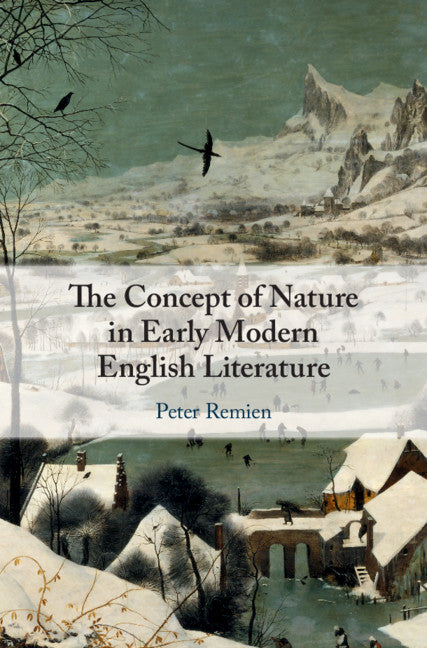Freshly Printed - allow 4 days lead
Couldn't load pickup availability
The Concept of Nature in Early Modern English Literature
Participates in an intellectual history of ecology while prompting a re-evaluation of nature in the early modern period.
Peter Remien (Author)
9781108496810, Cambridge University Press
Hardback, published 14 February 2019
234 pages
23.5 x 16 x 1.6 cm, 0.47 kg
The Concept of Nature in Early Modern English Literature traces a genealogy of ecology in seventeenth-century literature and natural philosophy through the development of the protoecological concept of 'the oeconomy of nature'. Founded in 1644 by Kenelm Digby, this concept was subsequently employed by a number of theologians, physicians, and natural philosophers to conceptualize nature as an interdependent system. Focusing on the middle decades of the seventeenth century, Peter Remien examines how Samuel Gott, Walter Charleton, Robert Boyle, Samuel Collins, and Thomas Burnet formed the oeconomy of nature. Remien also shows how literary authors Ben Jonson, George Herbert, Andrew Marvell, Margaret Cavendish, and John Milton use the discourse of oeconomy to explore the contours of humankind's relationship with the natural world. This book participates in an intellectual history of the science of ecology while prompting a re-evaluation of how we understand the relationship between literature and ecology in the early modern period.
Introduction: oeconomy and ecology
1. The oeconomy of nature in seventeenth-century England
2. Penshurst's parasites: Ben Jonson and the art of bad housekeeping
3. The school of beasts: human and animal dwellings in Viret and Marvell
4. Divine husbandry: providence and oikonomia in the works of George Herbert
5. Labors of luxury: John Milton, Thomas Burnet, and the nature of human labor
Epilogue: from economy to ecology.
Subject Areas: Literary studies: c 1500 to c 1800 [DSBD], Literary theory [DSA], Literature: history & criticism [DS], Animals & nature in art [still life, landscapes & seascapes, etc AGN]


